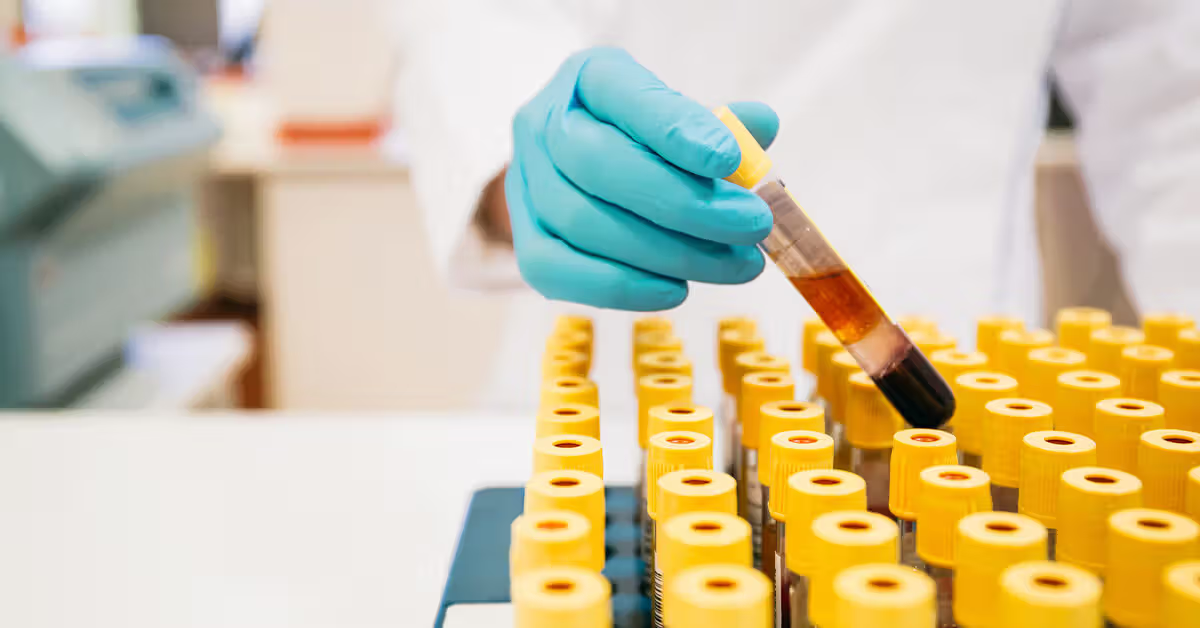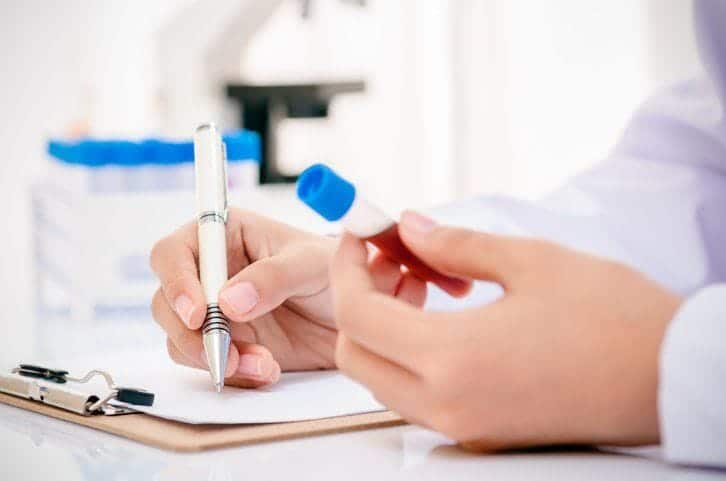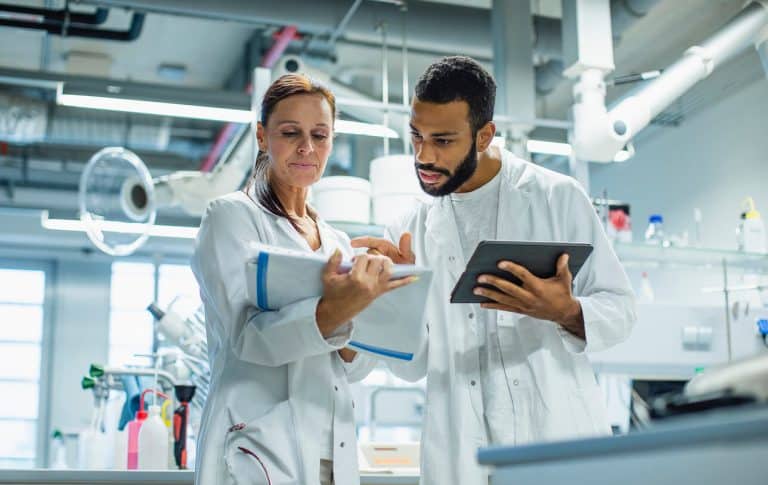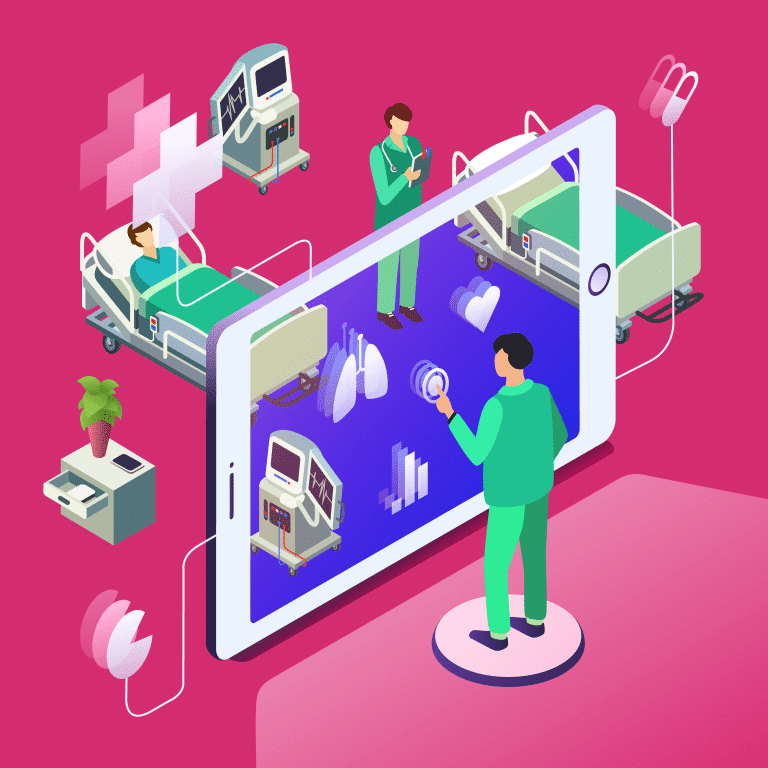Even though you’re only submitting a sample, typically either blood, urine, or stool, the process can seem a little daunting.
Sometimes, just the mention of a test is enough to send some people into a panic. Others may have an understandable fear of needles, and this can make a blood test a potentially stressful experience.
Lab testing experts can help you feel more at ease, just let them know you’re feeling a little stressed. You can also take some additional steps to help make the process go a little more smoothly.
Common Types of Lab Tests that Require Some Preparation

Instead, preparation means following the instructions laid out by your physician. This can include fasting 24 hours before the test or not drinking any liquids before taking the sample.
So, what types of lab tests typically require some preparation? The list is extensive but here’s a look at some of the common tests:
- Cholesterol tests
- Blood glucose tests
- Calcium tests
- Triglycerides tests
Other tests that also usually involve some type of preparation are:
- Fecal blood tests: Your physician may ask you to temporarily pause taking some prescribed medications immediately before testing. Instead of taking your medication in the morning, you may need to wait until after your lab appointment.
- Cortisol tests: Along with not eating or drinking any liquids right before testing, your physician may also recommend not brushing your teeth. Yes, toothpaste can occasionally interfere with test results. This can also apply to using mouthwash. If the thought of leaving your house without brushing your teeth makes you uncomfortable, just remember the lab testing experts are used to all of the required preparations.
- Creatinine tests: You may be able to nibble on raw foods like fruits and vegetables before testing, but your physician may ask you to avoid eating anything cooked.
- Pap smear: Women scheduled for a Pap smear may not be able to douche or engage in intercourse immediately before testing. Tampons may also be a no-no, instead, use a pad until the test is completed.
You also shouldn’t smoke any nicotine products, including alternatives such as vapes, before any type of laboratory test.
Alcohol is something else you’ll want to avoid. Your physician may also recommend resting a few hours before heading to the lab. This isn’t because the lab test requires physical exertion. Sometimes, even a blood draw can leave you feeling drained, and resting before the lab test can reduce feelings of tiredness.
Preparing for Your Test at the Medical Lab

However, there are a few other things you can do to help ensure everything goes smoothly. After all, you probably don’t want to go through the testing process and necessary preparations again.
Pay Attention to Where You’re Walking
Most medical labs are well planned out. The lab is designed to allow for easy movement in the waiting area, exam rooms, and down the hallways. With this being said, medical equipment can still be lying out. Sometimes, with cords and other obstacles in walkways.
While it’s understandable to be a little nervous, regardless of the type of lab test, this isn’t a good reason to not look where you’re going. Pay attention to your surroundings and always watch where you’re going. You don’t want to walk into a lab technician carrying someone’s sample.
If they drop it, there’s a chance you may be responsible for any additional testing charges.
Make Sure You Have Plenty of Time
This probably isn’t a concern if you’re collecting the sample at home and either mailing or dropping it off at the lab. However, if you have an appointment at the lab, it’s a good idea to leave yourself plenty of time before and after your appointment. In other words, don’t book an appointment somewhere else immediately following your scheduled visit to the lab.
You want to arrive at the lab before your appointment. There’s probably some paperwork to fill out, even if this isn’t your first visit. Medical labs can also run behind. Not every appointment is going to start or end at its scheduled time. This means your appointment can take longer than you anticipate.
Don’t forget about the before and after-testing follow-up. The lab expert will probably ask if you have any questions before collecting your sample. They’ll also inquire after testing. If you have questions, now’s the time to get answers. Some lab tests can also leave you feeling drained. Blood tests are an example. You may need to take a few minutes to rest and recover before leaving the facility.
Dress Appropriately
No, there isn’t a dress code for medical labs beyond the standard no-shoes, no-shirt policy. However, you do want to dress appropriately for the type of test. If you’re having a blood test, the lab technician is going to need access to the veins in your arm. Don’t wear tight clothing or several layers. The goal is to make collecting your specimen as easy as possible.
If you’re providing a urine or stool sample, now isn’t the time to wear tights underneath a pair of pants. The best advice is to wear loose clothing that’s also easy to remove if necessary. Save your latest fashions for a more appropriate setting than a medical lab.
Take a Deep Breathe and Relax Before Heading to the Medical Lab
Giving a specimen can be stressful, even if tests and needles aren’t on your list of phobias. The test can reveal specific aspects of your health and this can be nerve-racking. While you really can’t do anything about these types of concerns, you can still make the process go a little more smoothly.
Follow your physician’s pre-testing instructions, dress appropriately, and ask any questions during your visit.









